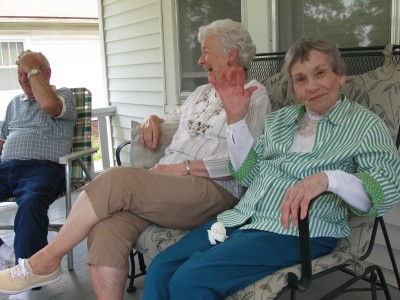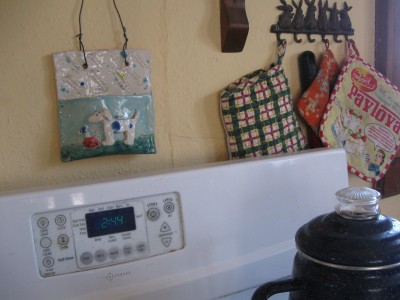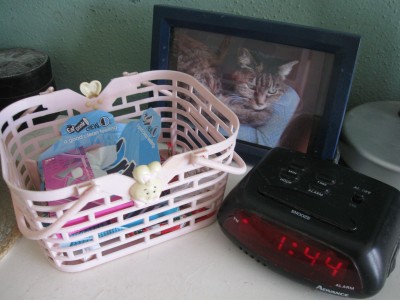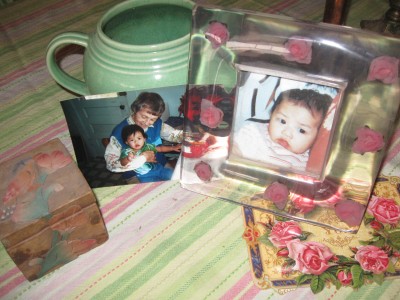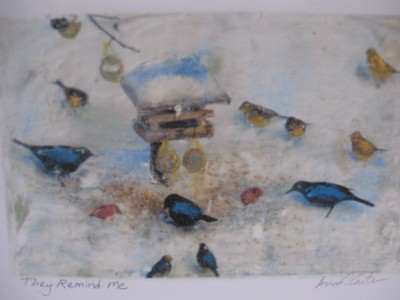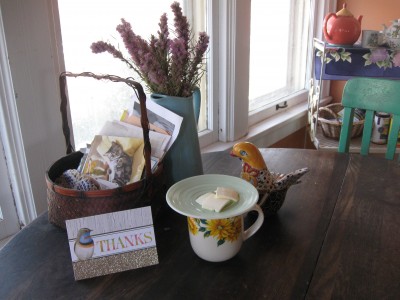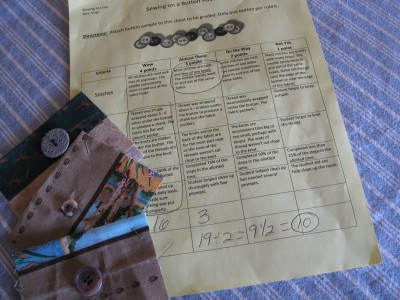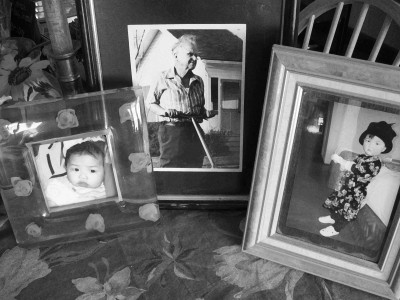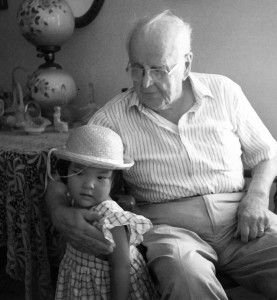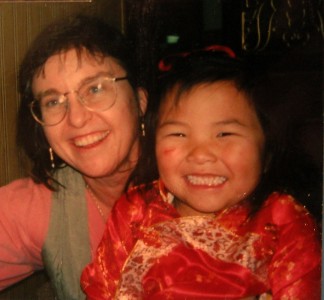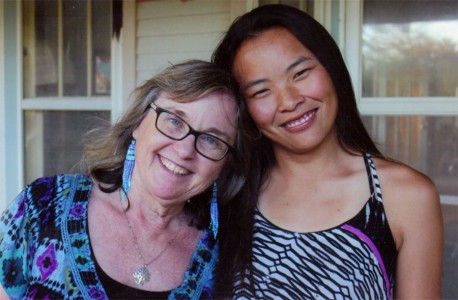I have my very own crop circle, which is a mound of sand where we are NOT putting up the pool this year. Someone, not so politely, called it a very large litter box and indeed I have seen it being used for that. I am thinking about turning it into a Zen herb garden. I got this idea while visiting a friend whose husband made one. It is quite charming with white pebbles surrounding small round areas of herbs contained by black rubber tubing. My friend said it’s not so charming to her as she has a vivid memory of looking out her window and seeing her husband pull up what was her herb garden, the kind I tend to have, which means no white pebbles and certainly not properly contained. I suppose she could practice Zen by standing in the middle of this new garden while chanting, “Let it go…just let it go.”
I have to say I’m quite proud of my tree stump flower garden. With the cool spring and lots of rain, it has come close to what I lust for—an English cottage style garden. I suppose it’s a lust for lushness. You will find me there every morning and evening, along with several cats and several hundred mosquitoes. I have come to realize that whatever hasn’t appeared yet is my favorite, as in “But where are the cosmos? They are my favorites!” Or else what has just appeared, as in “Oh, the nasturtiums are blooming. They are my favorites!” This resembles my feelings for the cats, as the one that is missing is suddenly my favorite, or else the one sitting on me is, but only if the claws are nicely tucked in. It’s rather like a dog: WALKS, my favorite! FOOD, my favorite! YOU, my favorite!
Helen would love for me to be non-dog-like in this area and say that she is my favorite daughter. This came up again on Facebook when she turned 19:
Happy Birthday, my lovely Helen.
Am I your favorite yet?
Really? That question again?
I can’t seem to get her to stop this badgering and even asked her friend, “Surely your parents never name a favorite, do they?” to which she replied, “Oh, yes, they tell me all the time that I’m their favorite. But my brother is usually in jail.”
I know my father had many favorite flowers that he grew in our small Topeka back yard. I know because he tended each one so carefully, putting the ones who weren’t doing well in an area that he called his “intensive care unit”. But he did have one special favorite that I never understood until much later in life.
My Father Loved Asters Best
He grew them from seed
ordered from a Burpee’s catalog
in early spring.
Late summer was when they bloomed
and as a child I anticipated with him,
then felt disappointment at their smallness,
the faintness of their colors.
Hoping to prove the wisdom of
a father gone from earth
seven years now,
I ordered aster seeds
from a Pinetree catalog
in not so early spring.
It seemed they’d never bloom
and I grew tired of waiting,
as we among the living do.
But then I saw some buds,
and just this week the blooming has begun,
in front of bachelor buttons
long past their prime,
behind browning yellow annuals
I bought but never learned the names of.
At this moment I love asters best,
their delicate petals
subtle variations
of pinks and lavenders,
their blossoms like the upturned skirts
of ballerinas on a heavenly stage,
fluttering gently,
as though from the faint breath of those
still bound to earth.
(August 28, 2007)
Yes, Helen, you are my favorite. Just as Rose is my favorite too. And yes, at times you may be the current most favorite because you’re in front of me or, at other times, because you’re not in front of me (readers, feel free to take that one of several ways). I count on you both for the joys that favorites bring. How could I chose between my two daughters when I can’t choose between the humble daisy or the glorious iris, between the blue flax that line my roadsides or the larkspur with their likeness of a bunny’s head? Why would I limit myself in such a needless way?
I don’t know if my crop circle will go back to grass before it ever becomes a Zen herb garden or something more my style, but I did notice a delicate white flower growing there in early spring that I’d never seen before and it certainly could become a favorite. As for now, the Black-eyed Susans are my favorite. I love their bright yellow petals and their willingness to shine in the mid-summer heat. But soon another will take center stage. Each one in turn will lift my spirits, reminding me that heaven and earth are more closely bound than we ever imagine.


